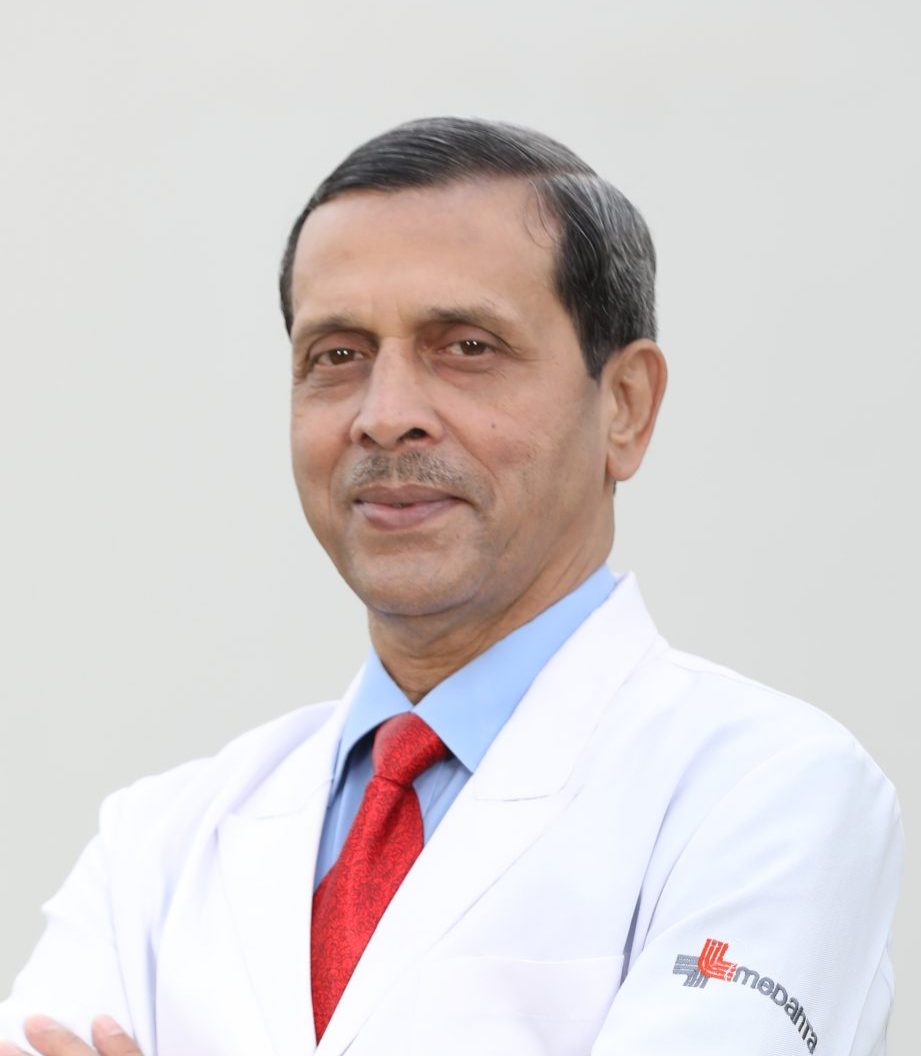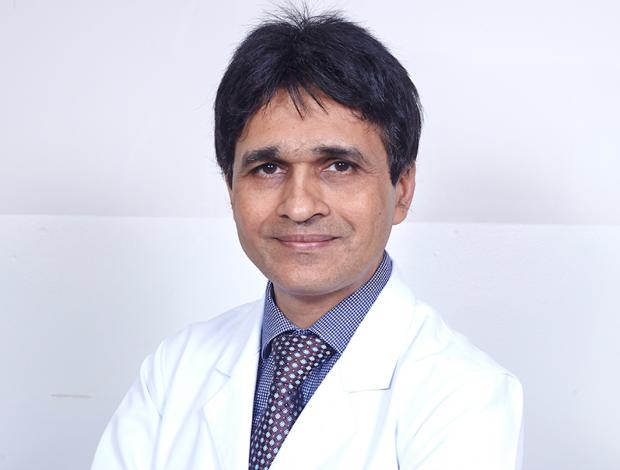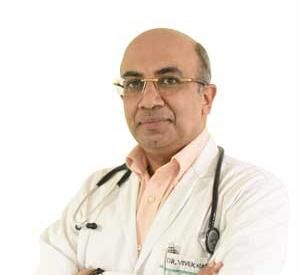About the Doctor
Dr. (Prof.) Arvind Kumar is a Thoracic (Chest) Surgeon who specialises in the treatment of surgical diseases of the chest involving the lungs, pleura mediastinum, trachea (windpipe), esophagus (food pipe), chest wall and diaphragm including Chest Trauma. He leads the country’s largest and most comprehensive Chest (Thoracic) Surgery, Chest Oncosurgery and Robotic Chest Surgery program offering the entire range of chest surgical services including Video-Assisted Thoracic Surgery (VATS) and the State of art Robotic Chest Surgery. Dr Arvind Kumar is credited with performing most of the VATS and Robotic Chest Surgeries in India, for the first time at the All India Institute of Medical Sciences (AIIMS), New Delhi where he delivered 36 years of ordained service. He has one of the Asia’s largest experience in Robotic Thymectomy for Myasthenia Gravis and Thymoma.
Specialization
- Robotic Thymectomy
- Key-Hole (VATS) Surgery of the Chest
- VATS (Key-Hole) Surgery for Lung Cancer
- Tracheal Resections for stenosis and tumours
Awards
- he most prestigious “Dr. B.C. Roy National Award” by the Government of India in the category “Eminent Medical Person of the year, 2014
- National President: The Association of Surgeons of India, 2019
- National Honorary Secretary, The Association of Surgeons of India, 2009
- Honoured with “Fakhr-e-Hind” (Pride of Nation) award.
- Awarded “Raj Nanda Fellowship” by the Raj Nanda Pulmonary Disease Research Trust in association with the British Thoracic Society, 2006
Frequently Asked Questions About Pulmonology
What is Pulmonary (Lung) Function Test?
PFT measures how much air you can breathe in and out and how fast you can do it and how well your lungs are working to deliver oxygen to your blood. PFT is a painless test and a technician will ask you to take a deep breath and then blow as hard as you can into a tube connected to PFT machine.
PFT is the most important test for the diagnosis and management of COPD. PFT is similar to ECG of the lungs.
What all conditions do Pulmonologist Treat?
COPD, Asthma, Tuberculosis, ILD (Interstitial Lung Disease), Respiratory Failure, Lung Cancer, Sleep Apnea syndrome (OSAHS), Snoring, Pleural Effusions, Pneumothorax, Pulmonary infections, Sarcoidosis, Hemoptysis (coughing out blood), Lymph nodes (glands)/ Masses in the chest
Is asthma Fatal?
Asthma, if not taken care of or controlled properly can prove to be fatal. Studies have shown that people who died of asthma, one third of them had mild disease. Thus, it is very important to keep your asthma in check and try and reduce your exposure to polluted air as much as possible.
When is Asthma Alarming?
Asthma can be caused by exposure to dust, pollens, cockroaches, house mites, air pollutants, perfumes, smoke and viral infections. It can be life threatening for some people and may require intervention. Few alarming symptoms are:
- Breathing in hard that the abdomen is sucked inside the ribs
- Gasping for air
- Difficulty in speaking
When to see the doctor for Asthma?
hen the air passage between the mouth, nose and lungs gets interrupted and there is inflammation or swelling of bronchial tubes, you might be suffering from serious bronchitis. A prolonged cough and cold can lead to acute bronchitis in children, while older adults can be also face problems in breathing if medical intervention is not taken on time. You need to visit the doctor if:
- You are having high fever- more than 101 degrees
- Difficulty in sleeping
- Coughing up blood
- Gasping for breath
- You are producing any discolored mucus
How will I know if I am suffering from Sleep apnea?
Sleep apnea is one of the most common disorders that often go undiagnosed. Sleep apnea should not be overlooked because its symptoms are so broad that it can interrupt your hard day at work and can lead to serious complications. The most common symptoms are:
- Waking up with sore or dry throat
- Loud snoring
- Occasionally waking up with a choking or gasping sensation
- Sleepiness or lack of energy during the day
- Sleepiness while driving
- Morning headaches
- Restless sleep
- Forgetfulness and mood changes
In addition to this, Obstructive Sleep Apnea (OSA) can have a negative impact on your health and can cause:
- Heart attack and Blood Pressure
- Diabetes
- Lead to Weight Gain
- Depression
- Aging of Skin













